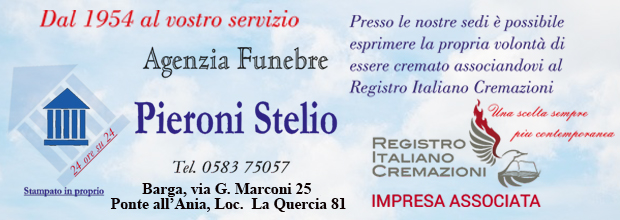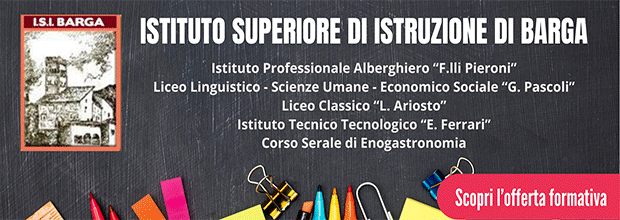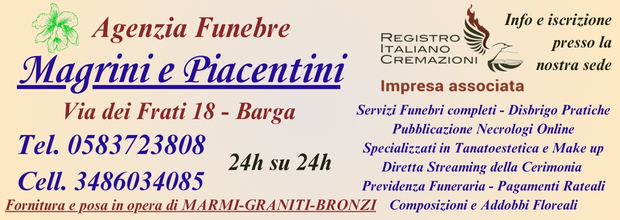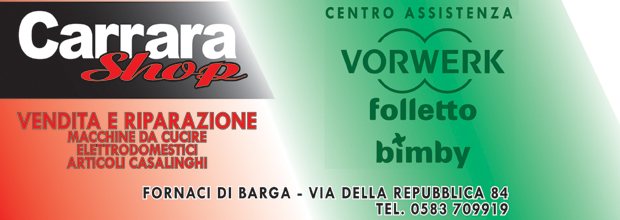IN SCOTLAND, people think I’m a reasonably clever guy. In Italy, they think I’m an idiot. It’s a language thing. Both my mother and father have Italian as their mother tongue, and in my youth it’s all we ever spoke in the house. As a result, I grew up with a good accent. It was both a blessing and a curse. The blessing is obvious, the curse less so. It stems from the fact that, like any language, the Italian spoken at home has a limited vocabulary. Words which Italian children learn in the playground, the workplace, in academic textbooks and at the cinema, were rarely if ever used.As a result, when summer came and I found myself trying to impress girls at Onesti’s cafe in Barga, I came across not as a cosmopolitan Scot with a remarkably good grasp of the language, but as a home-grown plodder, unable to discuss anything other than pasta or football.The predicament might have led me to reject my Italian roots. After all, if you don’t play the game, you can’t lose. But it didn’t. At the risk of sounding chauvinistic, there’s something special about being Italian; something you want to hang on to and pass down to your children.Yet I could never be as Italian as those teenagers on their Vespas who I saw each summer, and whose identity was so ingrained they didn’t even know it was there.So where did that leave me? Was I simply a second-rate Italian condemned to playing catch-up with those lucky enough to have been born and bred in the Old Country?I was well into my thirties before I found the answer. I was neither a Scot with a funny name nor a poor relation to the people I met on holiday each summer. I was a pure-bred, 100% Scots-Italian; a member of a group with a history which spans three centuries and whose members have had an influence in business, sport and the arts which is out of all proportion to their modest numbers.To me, this was a revelation. I no longer had to justify why, if I was so proud of my Italian roots, I didn’t just move back there. Nor did I have to apologise for my linguistic shortcomings. After all, I’ve yet to meet an Italian who speaks English as well as I do, and I speak Italian a damn sight better than most Scots.Maybe I’m an exception to the rule. Perhaps other Scots-Italians have never had questions of identity. But I doubt it.I remember a classmate who enjoyed playing war games with little lines of soldiers and tanks. It was always Britain versus Italy, and Britain always won. Noisily, spectacularly, overwhelmingly. Nothing unusual there, you might say, except for this: the kid was as Italian as they come. Name, face, everything. And maybe that was the point. The only way he could convince his ginger-haired, freckle-faced buddies that he was one of them, was by publicly attacking that part of his heritage which made him different. While everyone else was taking on Panzer divisions and Kamikaze squadrons, he was bombing the Bersaglieri.Another memory: the first time I saw the Spike Lee film “Do the Right Thing”.The movie features a character whose pizza house is covered with pictures of famous Italian-Americans: Frank Sinatra, Dean Martin, Joe di Maggio – they are all there.I remember taking great delight in this when I saw the movie, but also being slightly envious. Why couldn’t I walk into a Glasgow pizzeria and see
the heroes of my community?
They are not in short supply: Paolo Nutini, Eduardo Paolozzi, Tom Conti, Peter Capaldi, Daniela Nardini and Dario Franchitti spring to mind, and there are many more.
These people aren’t second-rate Italians, nor are they Scots with funny names. They are full-blooded members of my community; a community which shouldn’t have to choose between the country of its ancestors and the country of its birth in order to forge a stable identity.
In recent months a few newspapers and magazines have carried articles highlighting the remarkable number of Scots-Italians who have made their mark in music, media and the arts. But such items, inevitably, are little more than a snapshot. You wouldn’t expect them to examine the rich, distinctive culture and history of the Scots-Italians, and they don’t. That’s our job.
If I were to sit down with any of the people listed above we could come up with countless common experiences which help define who we are.
How many of them had school friends who loved coming round for dinner because their mums made such great food? How many were berated for supporting the wrong side when Italian teams played Celtic or Rangers? How many delighted in taking a Scots friend on holiday to their grandparents’ village? And how many wished their less-than-perfect Italian didn’t make them stand out when they finally got there?
Little things, perhaps, but it is often the little things – both good and bad – that make us who we are.
Behind those details, however, there also lies a bigger story, a shared history, which is unique and precious to us Scots-Italians. I’m reminded of it every time I see Italian tourists stepping off the plane at Glasgow Airport.
Dressed in duvet-sized ski jackets and spaceman boots, they jump into taxis which take them to centrally-heated hotels. There, a friendly concierge gives them advice on which pizzeria does the best calzone, and which channel shows the Serie A games on Sunday afternoons.
It was very different when our grandparents and great-grandparents stepped off the train at Glasgow Central, not just in the last century, but in the century before.
Their journey had begun on hilltops where the smell of sun-ripened tomatoes wafted from kitchen windows, and it ended in the second-city of the British Empire – a place where skies were grey and a single soot-blackened tenement housed more families than their entire village.
No pizzerias, no Safeway own-brand espresso mix, no central heating to keep out the cold. It was a different world, and one in which most would remain for the rest of their lives.
Jump forward fifty or so years, to the outbreak of World War Two. Those same people, who had spent their lives working hard in little shops and cafes, suddenly found their sons and grandsons thrown into jail as enemy aliens.
The “lucky” ones were transported to camps to the Isle of Man or Canada, and spent five years locked away from their wives and children. Hundreds of others were put on a ship called the Arandora Star, which on the 2nd of July, 1940 was torpedoed by a German submarine and sank. There were more than 700 Italians on the ship; fewer than 300 survived.
After the war, many of those same “enemy aliens” returned to Scotland to rebuild their businesses and lives. And despite everything that had gone before, most succeeded.
If this was America, they’d have made a mini-series. Instead, with a few honourable exceptions, the history of our community exists only in stories told by the dwindling number of people who lived through it.
So too our experience as individuals growing up with two traditions is often neglected or dismissed as an amusing curiosity.
Yet that history and those experiences are unique to us – not as Italians, not as Scots, but as Scots-Italians. They helped make us who we are.
They should be understood and celebrated, loudly and often.
If this was America…
- 2 di Sergio Casci









Lelio Angelantoni
22 Ottobre 2009 alle 10:53
Mr.
Ben scritto, Sergio, ma almeno a Barga, come Italo-Scozzese riconoscono la tua esistenza. Quando noi “Americani” visitiamo Barga, non esistiamo. E` come se fossimo usciti dalle tombe del cimitero per fare una passeggiata nel villaggio per poi scomparire nella nebbia della Garfagnana. Il fatto che anche i nostri avi hanno attraversato il mare per fare statuette nel Canada, Stati Uniti o in Brasile e` riconosciuto solo dagli impiegati dei vari uffici anagrafi. Per gli altri non esistiamo………Lelio (membro del Barga Genealogical Research Group)
Marco Tortelli
4 Marzo 2013 alle 15:16
Re: Al via i lavori per il mercato contadino a Fornaci
D’accordo su tutta la linea.
Purtroppo, mi pare si continui a ragionare con una logica ormai superata: l’amministratore è bravo se riesce ad attrarre contributi, non importa per quale scopo, anche a costo di distruggere il territorio che invece dovrebbe tutelare.
Nel frattempo, ci si dimentica di occuparsi anche della più ordinaria amministrazione, senza arrivare agli esempi che fai tu: richiederebbero una coscienza del contesto in cui si opera ed una umiltà che mi sembra merce rarissima fra chi attualmente si occupa della cosa pubblica dalle nostre parti. Spero di sbagliarmi, ovviamente…